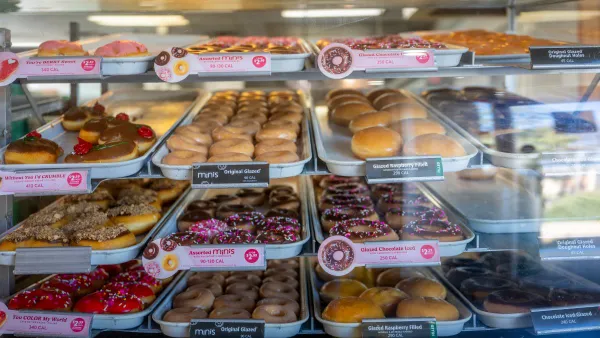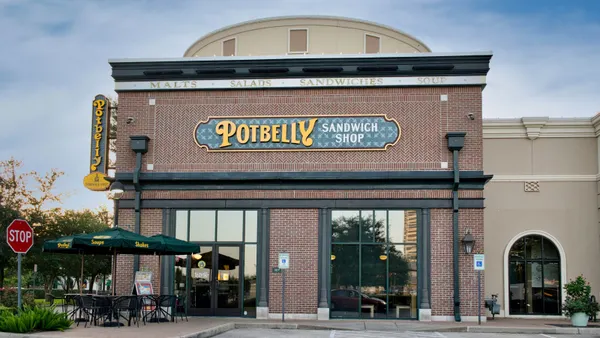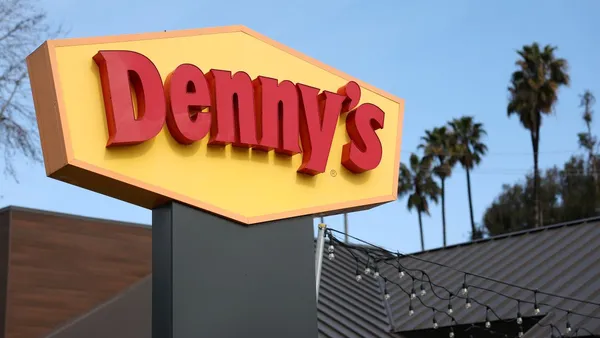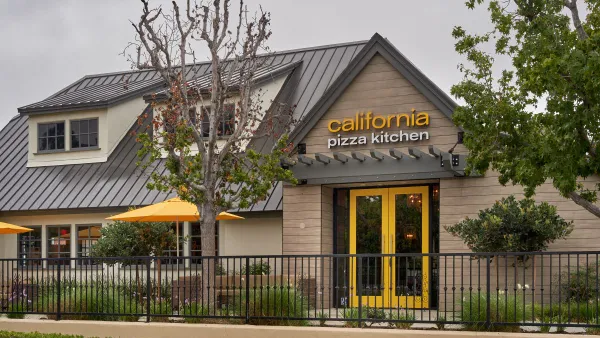Dive Brief:
- Less than two months since Pilotworks abruptly shuttered, the 10,000-square-foot shared kitchen space in Brooklyn has found a new owner, according to Eater. Pending city permits, the new incubator will open as Nursery, funded by Australian chef and entrepeneur Adam Melonas' food research lab Chew.
- All 175 Pilotworks vendors that operated in the facility will be invited back, a spokesperson said.
- Based in Boston, Melonas and his team develop processed foods made with natural ingredients. Though Chew has been successful thus far, Melonas had to slim down his natural candy company Unreal when sales fell short of expectations.
Dive Insight:
Though it's possible for a full-scale restaurant to build a brand and reputation in incubator spaces like this one, participating businesses often produce packaged goods like cooking condiments, tea drinks and ice cream. The shared space offers lower start-up costs than a brick-and-mortar storefront or leased production space, and incubators often support entrepreneurs with funding opportunities and marketing support.
New York City’s Economic Development Corporation invested $1.3 million in Pilotworks, which not only provided affordable access to kitchen space for upstart food businesses but also mentorship and distribution assistance. The city appears to be backing this second rendition as well, according to Eater.
Problems at Pilotworks started to surface in the summer when co-founder Nick Devane stepped down from his post as CEO. Around the same time, Food Fork Lab, a Portland subsidiary, said it would close in September, and then the Providence arm closed in August. In Brooklyn, Pilotworks sent an email to its nearly 200 vendors on a Saturday in mid-October announcing immediate closure, allowing only three days to retrieve anything left in the space.
Incubator spaces can foster success, and Pilotworks helped more than 300 new products come to market, per The Bridge. At least one of its businesses, Malai Ice Cream, opened its own shop. Chew prides itself on innovation in its Boston food lab, so that mission will likely continue at Nursery. It's less clear if Adam Melonas is any more trustworthy than Pilotworks' executive team, though, as he slimmed down Unreal after only a couple of years — celebrity endorsements aside.
Shared kitchens are becoming more common for both food manufacturers and upstart restaurants that aren't yet ready to invest in a permanent brick-and-mortar location. These facilities can help eateries meet growing consumer demand for food delivery, allowing them to expand into new markets without shelling out for expensive real estate.
California-based Kitchen United, for example, recently raised $10 million in funding for its "kitchen centers," which include commercial kitchen facilities, food preparation space, refrigeration and food storage. Restaurants that partner with the company also gain access to aggregated consumer and operational data that can show which menu items are most popular.
These large-scale "ghost kitchen" concepts aren't limited to the upstart world, either — Chick-fil-A is testing stores designed solely for delivery, with no dining rooms or drive-thrus, to take pressure off of regular stores that must juggle in-store and delivery orders. As restaurants across segments race to improve their delivery offerings, the chicken restaurant likely won't be the last major chain to experiment with this format.








